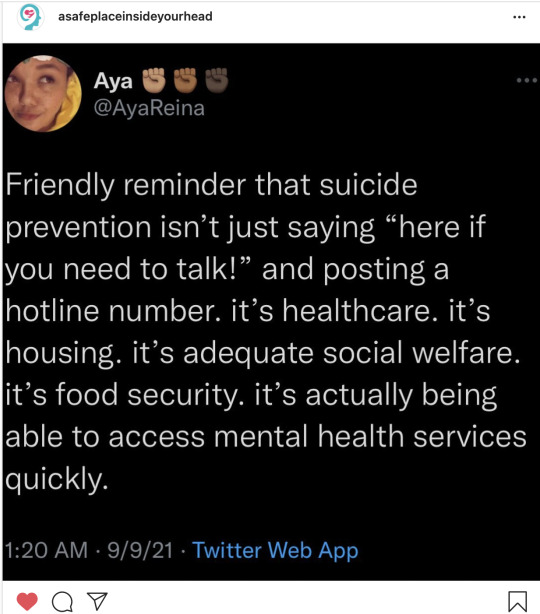I am a Registered Nurse in the ER and have seen first-hand the detrimental effects of poor mental health. The COVID pandemic has only increased depression, anxiety, and other mental health issues. This pandemic has shown that legislative reform is needed to ensure our psychiatric population in the United States is being taken care of.
Don't wanna be here? Send us removal request.
Text
I would like to open this forum with a discussion regarding mental health and substance abuse. More specifically the indirect correlation between the decline of mental health and the increase in substance abuse during the COVID pandemic. I am currently a senior nursing student at Millersville University of PA, as well as a practicing Registered Nurse at a local ER.
Since the pandemic started in 2020, mental health has taken a downhill trend from: isolation, fear of sickness, job loss, loss of income, lack of childcare, loss of independence; there are few of us that have been left unscathed during this time of transition. Approximately 1 in 4 people have reported that they have increased depression and anxiety since the start of this global pandemic, and it is human nature to find a cure to ailments that arise. Unfortunately, we are only human and some have turned to more destructive means of “self-medicating” such as drugs and alcohol in order to attempt to cope with the current climate and new or worsening mental health. As an ER nurse I have personally been witness to the struggling addict that wants help, but there are no beds to send them for treatment because of their underlying dual diagnosis of mental health.
As a species the global pandemic has caught us off guard, but we do not have to continue to keep the wool over our eyes. We can bind together and advocate to continue directing funding back into the mental health field. The Department of Health Services is attempting the best they can with the funding that they have with programs such as SAMHSA (Substance Abuse and Mental Health Services Administration) and there are links on the DHS website that will direct you to your local substance abuse programs. However, with underfunding and understaffing, obtaining such resources becomes a daunting task for those of us not currently impaired by our own mental health.
A current statement from DHS SAMHSA on September 28, 2021:
“Following up on its commitment to invest $825 million in Community Mental Health Centers (CMHCs), the Substance Abuse and Mental Health Services Administration (SAMHSA) is announcing the distribution of funds to 231 CMHCs across the country.”
According to data from the U.S. Centers for Disease Control and Prevention (CDC), from August 2020 through February 2021, the percentage of adults with recent symptoms of an anxiety or a depressive disorder increased from 36.4 percent to 41.5 percent, and the percentage of those reporting an unmet mental health care need increased from 9.2 percent to 11.7 percent.
“Programs like SAMHSA attempt to alleviate these unmet by directing their funding into:
· Audio and audio-visual, HIPAA-compliant telehealth capabilities
· Outpatient services
· Trauma-informed screening, assessment, diagnosis and patient-centered treatment planning and treatment delivery
· Clinical and recovery support services
· Resources to address the mental health needs of CMHC staff.
Allowable services under the grant include:
· Training behavioral health professionals to work with schools to address behavioral health issues for school-age youth
· Providing staff training on behavioral health disparities, including for building cultural and linguistic competence and on using strategies to engage and retain diverse client populations;
· Expanding capacity and availability of crisis beds;
· Expanding mobile crisis mental health services for target populations;
· Developing and implementing outreach strategies and referral pathways for vulnerable populations, such as minority populations and individuals residing in economically disadvantaged communities
· Training and supporting peer staff to serve as integral members of the team to address mental health needs that may have arisen because of the pandemic – including but not limited to trauma, grief, loneliness and isolation.”
All of this information can be accessed on https://www.samhsa.gov/newsroom/press-announcements/202109281153 .
Programs like this fuel our progression as a country by helping to support our vulnerable populations. If we can continue funding in this direction and do it right with proper consulting and resource management, we can make an impact to help treat those left in the shadow of the pandemic. I understand that this discussion is a lot to accomplish with one person, but if one person can become two, and two becomes four, then before we know it we can make a change in a world ravaged by a virus that has already taken enough from each of us.
References:
Mental health, substance use, and suicidal ideation during the COVID-19 pandemic . Centers for Disease Control and Prevention . (2020, August 14). Retrieved November 16, 2021, from https://www.cdc.gov/mmwr/volumes/69/wr/mm6932a1.htm
SAMHSA awards record-setting $825 million in grants to strengthen community mental health centers, and support Americans living with serious emotional disturbances, mental illnesses. SAMHSA. (2021, September 28). Retrieved November 16, 2021, from https://www.samhsa.gov/newsroom/press-announcements/202109281153.
Substance abuse. Department of Human Services. (2021). Retrieved November 16, 2021, from https://www.dhs.pa.gov/Services/Assistance/Pages/Substance-Abuse.aspx.
0 notes
Text
Since the pandemic started, mental health has declined from isolation, fear of sickness, job loss/income loss, lack of childcare, school closures, etc. Approximately 1 in 4 people have reported that they have been depressed/anxious since the pandemic started. Unfortunately, substance abuse is also on the rise because of the decline in mental health. People turn to drugs/alcohol to help “alleviate” their psychological pain. The ER that I work for is overrun with psychiatric patients and there is not enough resources that are available for these patients. Something needs to change to allow for more funding for this crisis.
Reference:
Kamal, R., Panchal, N., Cox, C., Garfield , R. (2021, February). The implications of COVID-19 for mental health and substance use. KFF. Retrieved November 15, 2021, from https://www.kff.org/coronavirus-covid-19/issue-brief/the-implications-of-covid-19-for-mental-health-and-substance-use/.

1 note
·
View note
